2016 convinced me of the need to collaborate more deeply than ever: to deliver on the bold future envisioned in the new Sustainable Development Goals; to protect past progress made towards equality—now threatened by the politics of division; to tackle the deep social exclusion that has at least in part driven the political turbulence of recent months.
The year’s events, and their potential implications, have added urgency to need to collaborate. I have always drawn inspiration from the African proverb, “If you want to travel fast, travel alone. If you want to travel far, travel together.” At an intuitive level, the idea of working together to achieve more is self-evident. Yet in practice, collaboration and partnership are all too often associated with complexity and cost. While they are key to achieving scale, they are not often associated with the other critical thing that is needed: speed. If we are to travel fast and far, we must be prepared to rethink the way we collaborate.
At Business Fights Poverty, we have been prototyping a new approach over the past 12 months. We’ve pulled together a decade of experience and a ton of feedback, to create Challenges as a new framework for how we as a global community of over 25,000 professionals, together with many of the world’s leading businesses, NGOs and universities, collaborate for social impact.
In our new approach, we seek out the best minds and most passionate people to take rapid action to address specific global issues. Through Challenges, our aim is to harness the power of open collaboration, amplifying it through technology and focusing it around practical priorities.
To date, we have launched 10 Challenges, from supporting women’s economic empowerment to embedding the SDGs. These are summarised in our new booklet and listed below. And we have many exciting Challenges in development, looking to make a difference on topics such as modern day slavery, the refugee crisis and social innovation. Please get in touch if you would like to become a supporter to one of these Challenges or if you would like to put forward a new Challenge.
I have been overwhelmed by the generosity of people’s time and support. Close to 2,000 of you have joined Challenges and many have actively participated by submitting articles, joining workshops or participating in online events. This engagement has already resulted in a number of valuable outputs (on micro-enterprise and inclusive distribution). Even more importantly, I have seen it leading to the deepening of relationships. Afterall, it is only by connecting at an individual level, around our shared vision for people and planet, and beyond our traditional boundaries, that we are going to achieve the change needed.
We want to ramp things up further in 2017. We want to launch many more Challenges, and make it easier for you to engage and collaborate. Please do send us your feedback and ideas.
The impact of 2016 will be shaped by the actions we take, individually and collectively, to stand up for and make progress towards the world we want to see. Thank you again for your engagement, and I look forward to collaborating in 2017!
Challenges Launched in 2016
![]() Based on expert workshops and an online discussion, this Challenge developed a new guide for business: Growing Together – Strengthening Micro-Enterprises in Value Chains (available here). The guide highlights the critical role that micro-enterprises play in value chains, the multiple inter-connected challenges they face and the need for a “market systems” approach to collaboration to ensure greater and more sustained impact. Click to find out more.
Based on expert workshops and an online discussion, this Challenge developed a new guide for business: Growing Together – Strengthening Micro-Enterprises in Value Chains (available here). The guide highlights the critical role that micro-enterprises play in value chains, the multiple inter-connected challenges they face and the need for a “market systems” approach to collaboration to ensure greater and more sustained impact. Click to find out more.
Timeframe: 12 months, ending Q3 2016
![]() Based on interviews, input from events in Colombia and New York and an online discussion, this Challenge has produced a discussion paper: How Do We Scale Distribution and Sales Networks That Create Opportunities in Low-Income Markets? (available here). This explores different models and highlights key lessons in scaling these. Next year, roundtable discussions will explore options for a deep dive investigation into specific solutions to scale. Click to find out more.
Based on interviews, input from events in Colombia and New York and an online discussion, this Challenge has produced a discussion paper: How Do We Scale Distribution and Sales Networks That Create Opportunities in Low-Income Markets? (available here). This explores different models and highlights key lessons in scaling these. Next year, roundtable discussions will explore options for a deep dive investigation into specific solutions to scale. Click to find out more.
Timeframe: 8 months, ending Q1 2017
![]() Based on interviews, case studies, an online event and in-person roundtable, this Challenge has inputted into the UN High Level Panel on Women’s Economic Empowerment, and will feed into DFID’s new women’s economic empowerment strategy. Click to find out more.
Based on interviews, case studies, an online event and in-person roundtable, this Challenge has inputted into the UN High Level Panel on Women’s Economic Empowerment, and will feed into DFID’s new women’s economic empowerment strategy. Click to find out more.
Timeframe: 9 months, ending Q1 2017
![]() Based on interviews with commercial and functional business personnel and an online discussion, this Challenge is close to finalising a business guide to help companies embed the SDGs into their core business and value chains. The guide will include insights on barriers, drivers and strategies for engaging commercial colleagues and supply chain partners and facilitate cross-company learning. Click to find out more.
Based on interviews with commercial and functional business personnel and an online discussion, this Challenge is close to finalising a business guide to help companies embed the SDGs into their core business and value chains. The guide will include insights on barriers, drivers and strategies for engaging commercial colleagues and supply chain partners and facilitate cross-company learning. Click to find out more.
Timeframe: 6 months, ending Q4 2016
![]() Drawing on a stakeholder workshop, this Challenge has been developing a white paper that identifies the critical levers that influence smallholder farmers’ incomes, and the roles companies and others can play in using those levers to help increase incomes. Click to find out more.
Drawing on a stakeholder workshop, this Challenge has been developing a white paper that identifies the critical levers that influence smallholder farmers’ incomes, and the roles companies and others can play in using those levers to help increase incomes. Click to find out more.
Timeframe: 3 months, ending Q4 2016
![]() Based on expert interviews and an online discussion, this Challenge is close to completing a guide for use by individuals working in procurement, sustainability or communications functions in companies that are looking to connect their support for the SDGs with their work with smallholder producers to amplify sustainable development impact and business benefits. Click to find out more.
Based on expert interviews and an online discussion, this Challenge is close to completing a guide for use by individuals working in procurement, sustainability or communications functions in companies that are looking to connect their support for the SDGs with their work with smallholder producers to amplify sustainable development impact and business benefits. Click to find out more.
Timeframe: 8 months, ending Q4 2016
![]() This Challenge produced a set of online resources to deepen learning around the role of business in supporting peace, including practical insights for and from business. In October, a 4-week online conference brought together online articles, 3 online discussions and a web-streamed event in Bloomington, Indiana. Click to find out more.
This Challenge produced a set of online resources to deepen learning around the role of business in supporting peace, including practical insights for and from business. In October, a 4-week online conference brought together online articles, 3 online discussions and a web-streamed event in Bloomington, Indiana. Click to find out more.
Timeframe: October – November 2016
![]() Based on interviews, a roundtable discussion and an online discussion, this Challenge is developing a guide for business and those working with business who want to make a measurable difference to youth unemployment through investing in and supporting the development of skills that will help young people find decent jobs. Click to find out more.
Based on interviews, a roundtable discussion and an online discussion, this Challenge is developing a guide for business and those working with business who want to make a measurable difference to youth unemployment through investing in and supporting the development of skills that will help young people find decent jobs. Click to find out more.
Timeframe: 10 months, ending Q2 2017
![]() As the GSK-Save the Children partnership reaches its third anniversary, a series of insight sharing activities have shed light on partnership practice. Click to find out more.
As the GSK-Save the Children partnership reaches its third anniversary, a series of insight sharing activities have shed light on partnership practice. Click to find out more.
Timeframe: 9 months, ending Q1 2017
![]() This Challenge is developing a guide for investors, aimed at helping them to play a role in strengthening education quality and inclusion, and to make an effective child-rights-based defence of good quality low cost private education. Engagement activities will start soon. Click to find out more.
This Challenge is developing a guide for investors, aimed at helping them to play a role in strengthening education quality and inclusion, and to make an effective child-rights-based defence of good quality low cost private education. Engagement activities will start soon. Click to find out more.
Timeframe: 6 months, ending Q2 2017



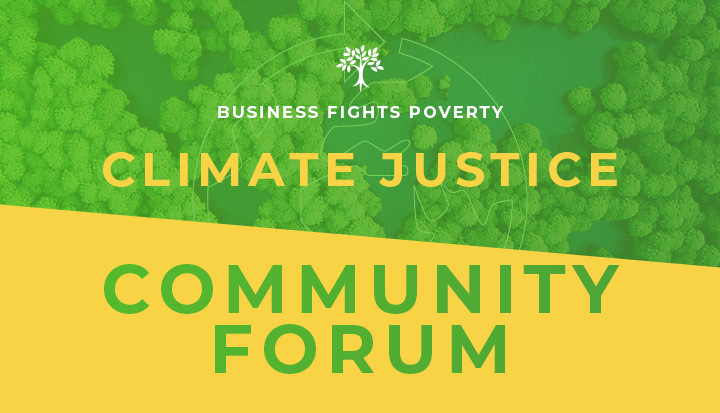
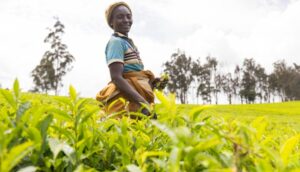
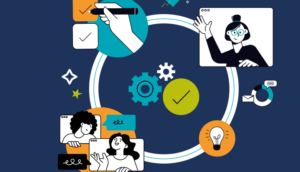
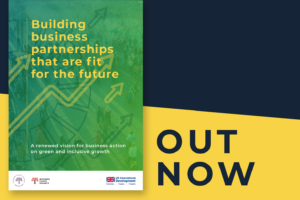
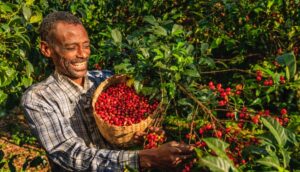



3 Responses
Very inspiring reflections from 2016 !. Thanks for including the key challenges that BFP community is addressing collectively. I am also equally looking forward to learn,collaborate and contribute in 2017!
Bravo! – we cannot Remind others Enough of the URGENCY for More Profound COLLABORATION & the Need for Real, Lasting IMPACT that Facilitates Continued Unity among ALLIANCES crossing Sectors! Cheers and Thank you, Zahid! ¡Feliz Año Nuevo! Happy New Year! – let’s make it a fabulous one! Best, Linda
Thanks for sharing these challenges and look forward to convening greater alliances and knowledge sharing in 2017.